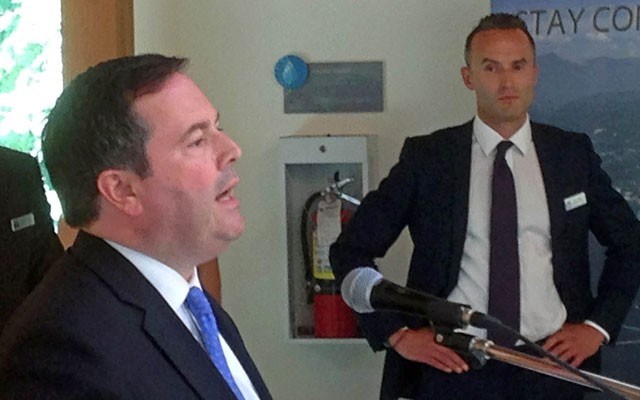During a speech to members of the Whistler and Squamish chambers of commerce last week, minister of employment and social development Jason Kenney implied there may be relief for businesses fighting labour shortages in the corridor.
"We realize there are places... where there is a really hot labour market surrounded by high unemployment," Kenney said at the Aug. 6 meeting.
"We are prepared on a case-by-case basis to look at situations like that."
The comments concern recent changes to the federal Temporary Foreign Worker Program (TFWP), and one change in particular that bars employers from hiring temporary foreign workers in regions where unemployment is over six per cent.
For the Whistler Chamber — which teamed up with its Squamish counterpart and West Vancouver-Sunshine Coast-Sea to Sky Country MP John Weston to arrange the luncheon with Kenney — the concerns arise in how Whistler's unemployment rate is calculated — using a 2013 average of 6.7 per cent for the mainland southwest region, which includes Metro Vancouver.
The next step for the Whistler Chamber, CEO Val Litwin said, is to compile data that better reflects Whistler's unemployment rate — a number he believes to be closer to the three per cent range.
"I think the specific call to action is in 30 days we'll loop around again with some more directed data, and I hope some very specific policy considerations for the minister to weigh," Litwin said.
"Now that we have heard from the minister there might be consideration and there might be some wiggle room for regional consideration, we will now follow up with more data."
Businesses in attendance expressed encouragement at Kenney's comments.
Public opinion, however, seems to weigh against businesses using the program.
"Businesses are freaking out because they might actually have to start paying an employee a real wage," said Pemberton resident Paul Rowe, in a letter to Pique last week. "I don't know about you, but I cannot survive off $10.25 an hour. Yeah, you might throw in a season's pass, but the last time I checked IGA doesn't take days on the mountain as a currency to put food in my mouth."
Comment sections of stories relating to the program have been opposed as well.
"I'm sorry, I'm completely against this program," said Whistlerite Tom Beith on the Pique website. "Why not work on raising minimum wage and fostering employers to want to hire Canadians?"
It's a sentiment that Kenney said the government agrees with.
"The truth is we want to make sure that Canadians always get the first crack at available jobs. The TFWP should only be a last and limited resort," he said. "I think virtually every Canadian agrees with that, and that's what our changes are designed to do."
Kenney noted that there are still more than 100,000 unemployed British Columbians, including high numbers of aboriginal and youth unemployment.
"The challenge for employers is to recruit those folks first before they go abroad."




